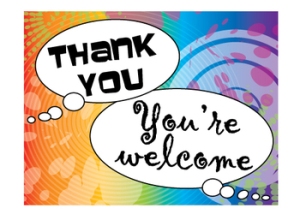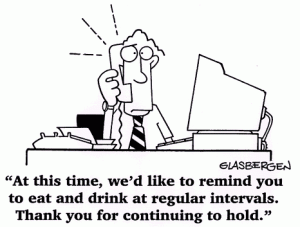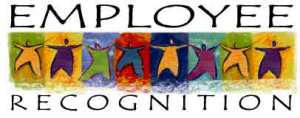Thank you.
You’re welcome.
Pretty easy, right?
At one time or another we were all taught that the proper response to ‘Thank you’ is ‘You’re welcome’. It’s one of those basic tenets of our society; like washing your hands – which is another rant but let’s save that for another day.
So why is it that we’ve lost (abandoned?) this simple convention? If you listen to any interview, from any source, you inevitably hear the interviewer say. “Thank you (fill in the name, position, etc., etc. HERE).
To which the interviewee replies, “Thank you (fill in the name of the interviewer, etc., etc., HERE).
When this happens – and it almost always does – my poor brain gets trapped in a waking nightmare of an ever escalating spiral of ‘over gratitude’.
I have been told that, in some cultures, there is a conscious effort to gain ascendancy over another person through lavishing every more elaborate gifts upon each other. Finally, the party which does not go bankrupt achieves the undying servitude of the ruined party (or some such nonsense. I love hyperbole because it helps me be lazy and still make my point.)
We’ve all seen the same thing happen with the payment of compliments. “I love your hair.”
Is met with, “Really? It’s not as long and silky (not silken -as it should be- but silky, kind of like mouthwash is ‘minty’ rather than mint flavored, etc., etc., etc.) as yours is. I love your silky hair.”
This then prompts the next oneupsmanship salvo, “Silky? Really? I think it’s too limp. I wish I had your hair’s body.”
Well, enough of that but, you get my point. No one can let it rest. We HAVE to keep escalating. It’s as if we are driven to prove that we’re humbler, kinder, more grateful, more complimentary than anyone else.
Helpful hint here folks: It’s not a competition. There are times when we’re going to be on top and times when the other person is going to be there instead of us.
Unfortunately, because this habit has become so pervasive in our culture, I find myself slipping into it. When I do, I almost fall down kicking myself in the backside. I’ve even been known to backtrack and apologize to the other person before responding again with the appropriate rejoinder.
Perhaps that’s the attraction of Steampunk for us. It hearkens to a time when it was fashionable to exhibit more genteel manners. When paid a compliment, the recipient merely replied, “Thank you.”
In cases where a soupçon more gratitude is required the respondent may add, “You are too kind.” or some other such enhancer. But that’s the limit. Once the compliment is paid and acknowledged, the conversation moves on (or ends, as the case may be).
But in today’s ever more competitive world we can’t seem to do that. However, if and we realize this is a fantasy, but if you wanted to break the oneupsmanship of gratitude cycle, how might you respond?
We’d love to hear an exchange where the interviewer says something like:
“Well John, that’s all we have time for today. Thank you so much for coming on our show and discussing your new book, All About Conversation.”
And John replies:
“You’re welcome Melissa. It’s been a pleasure to speak with you.”
And that’s it. Nothing more is said between them. Melissa may go on to explain that John’s book is available at bookstores, published by so-and-so press, available in ebook form, or whatever else but the conversation with John is at an end. And a gracious end at that.
As a parting shot, I want to make it clear that this is not a new problem. It stretches back for quite some time. If you don’t believe me, watch the clip below. It’s from the 1937 Marx Brothers film A Day at the Races. (The true insanity begins about 57 seconds into the clip.)
Actually, it doesn’t matter if you believe me or not. Watch it anyway. You probably need the laugh.
Thank you for reading this.




